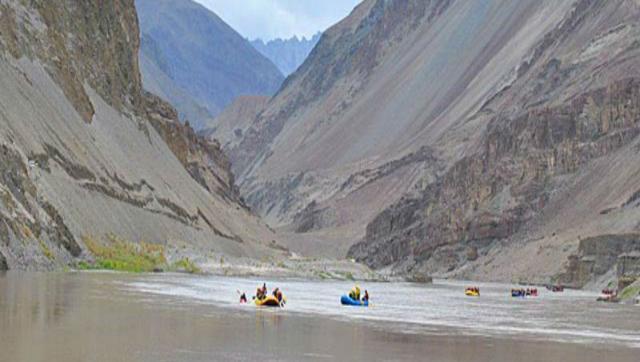Reviewing the Indus Water treaty between India and Pakistan

The Indus water treaty , dated September 19, 1960 signed between India and Pakistan, is one of the most liberal water sharing pacts in the world. In 1960, Indian Prime Minister Jawaharlal Nehru and Pakistan president Ayub Khan signed the treaty to share the water of six river – Ravi, Sutlej, Beas, Indus, Chenab and Jhelum between the two countries.
The discussions are being seen as a sign that reviewing the Indus Waters Treaty may be on the table for India as a response to the Uri attack in which 18 soldiers were killed by terrorists of the Pakistan-based Jaish-e-Mohammed. Officials say an assessment of the Indus treaty is bound to factor in China, where the river Indus originates and which also holds the controls of the river Brahmaputra. Unlike India and Pakistan, China has not signed any international water sharing agreement. Should China decide to divert the Indus, India could lose as much as 36 per cent of river water. China also has the option of stopping the flow of Brahmaputra river water into India. The Brahmaputra starts as the Yarlung Zangbo in China and flows down into the Bay of Bengal, feeding millions in India and Bangladesh on the way. China is building 11 mega dams on the Brahmaputra and is in a position to hurt India’s interests. Experts are also divided over the merits of reneging on an international water sharing agreement. If India withdraws from an international pact, it’s a violation of a legal treaty, which will invite international condemnation. The Indus Waters Treaty was signed between India’s first Prime Minister Jawaharlal Nehru and Pakistan’s president General Ayub Khan after World Bank brokered negotiations that lasted almost a decade.In the agreement, control over the three eastern rivers – the Beas, Ravi and Sutlej – was given to India and the three western rivers – the Indus, Chenab and Jhelum – went to Pakistan, unrestricted.India can use only 20 per cent of the water of the Indus, which flows through it first, for irrigation, transport and power generation. If India were to cut off supply to Pakistan, it could cause major crises in that country as a majority of its areas are dependent on Indus water.But stopping the flow of Indus into Pakistan would cause floods in Jammu and Kashmir and Punjab.




